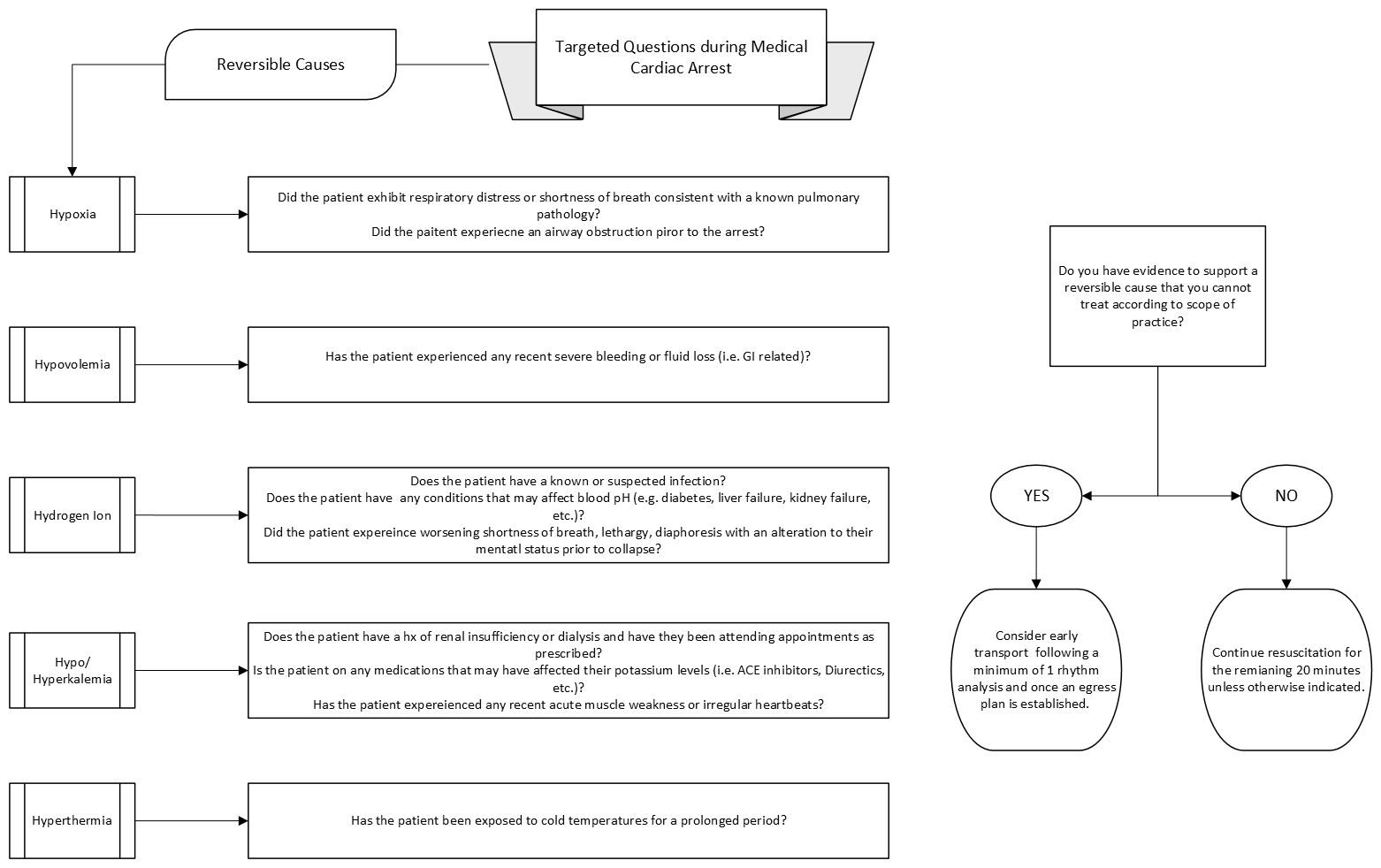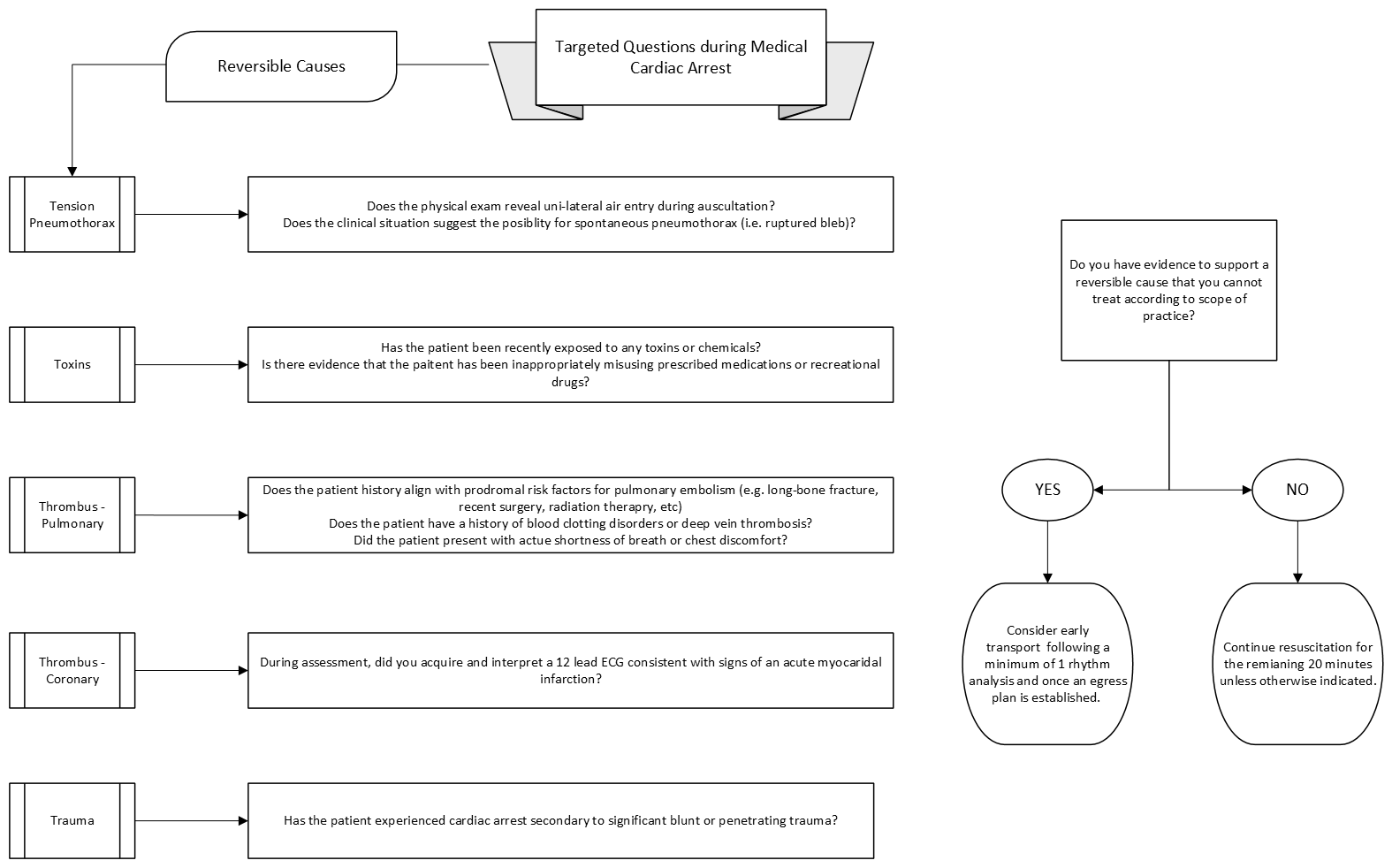
May Tip of the Month - Reversible Causes of Cardiac Arrest: Unlocking the Key to Increased Survival
Screening cardiac arrest patients for reversible causes is a critical step in improving survivability and optimizing patient outcomes. By identifying reversible causes, paramedics can implement targeted interventions, or make the determination for early transport, that may significantly increase the chances of successful resuscitation.
The impact of acquiring a well-timed comprehensive event and medical history cannot be overstated, as it allows paramedics, and emergency physicians alike, to tailor treatment strategies based on the specific needs of each patient. For instance, addressing hypoxia through oxygen therapy or correcting electrolyte abnormalities can stabilize the patient's condition and improve the efficacy of interventions like defibrillation and anti-arrhythmic medications.
It is advised to employ a targeted questioning approach during a clinical interview with relatives or bystanders who have knowledge of the patient. This approach will help in obtaining valuable information regarding the events preceding the patient's absence of pulse
Below are examples of targeted questions that could aid in identifying potential reversible factors during the management of a patient in cardiac arrest. It is important to recognize that this compilation serves as a reference and should not be considered an exhaustive checklist. Targeted questions are designed to elicit crucial information for working diagnosis consideration, with further inquiries arising based on the obtained information. Each case is unique, and not all potential causes need exhaustive investigation. The NWRPCP advocates for relying on your clinical expertise and discretion in all instances.


For more information, please review our recent cardiac arrest prerequisite on reversible causes:
Identifying and Treating Reversible Causes of Cardiac Arrest 2024
Previous Tips
-
January Tip of the Month - Mean Arterial Pressure "MAP" - The Rule of 65
-
Winter Emergencies: Recognition and Care for Hypothermia and Frostbite
-
November Tip of the Month - Not "Just" the Flu: Recognizing High-Risk Respiratory Illness
-
October Tip of the Month - Diabetic Emergencies
-
September Tip of the Month - Sepsis
-
August Tip of the Month - Mass Casualty Incidents
-
July Tip of the Month - Breaking down Burns
-
June tip of the month - High-Quality CPR & Defibrillation
-
May Tip of the Month - Prehospital Trauma Management
-
April Tip of The Month - Paramedic resilience strategies; recognizing and managing burnout